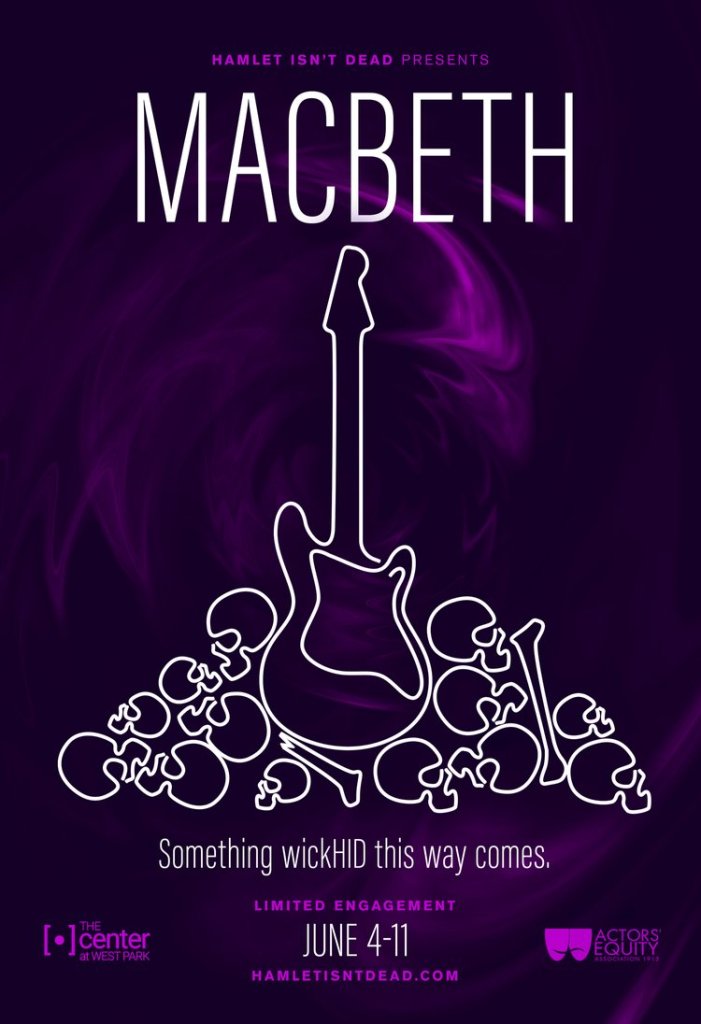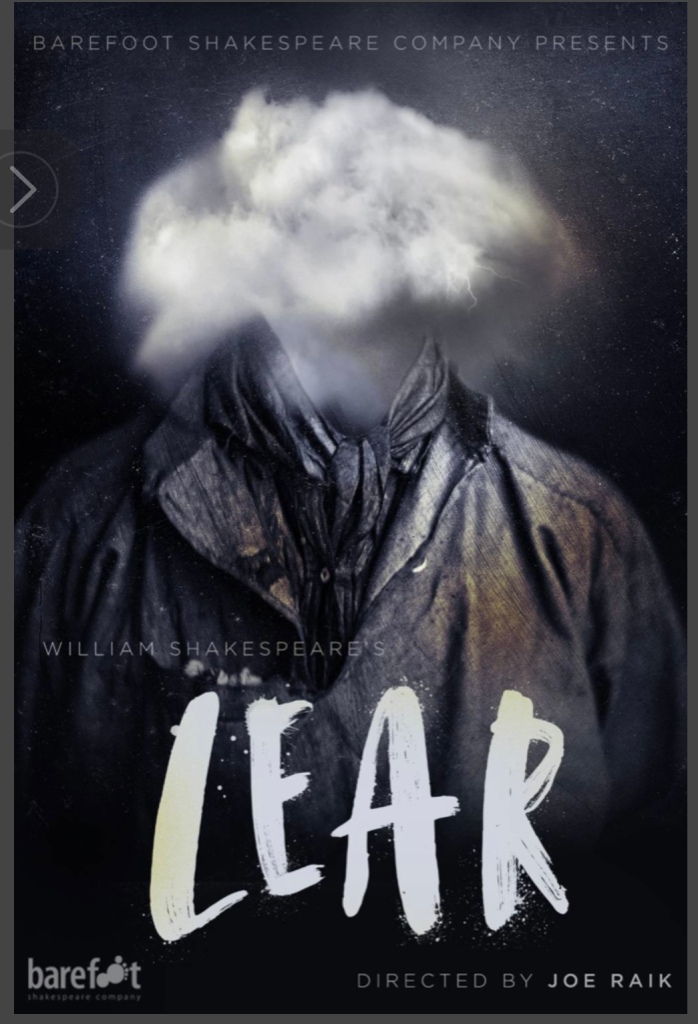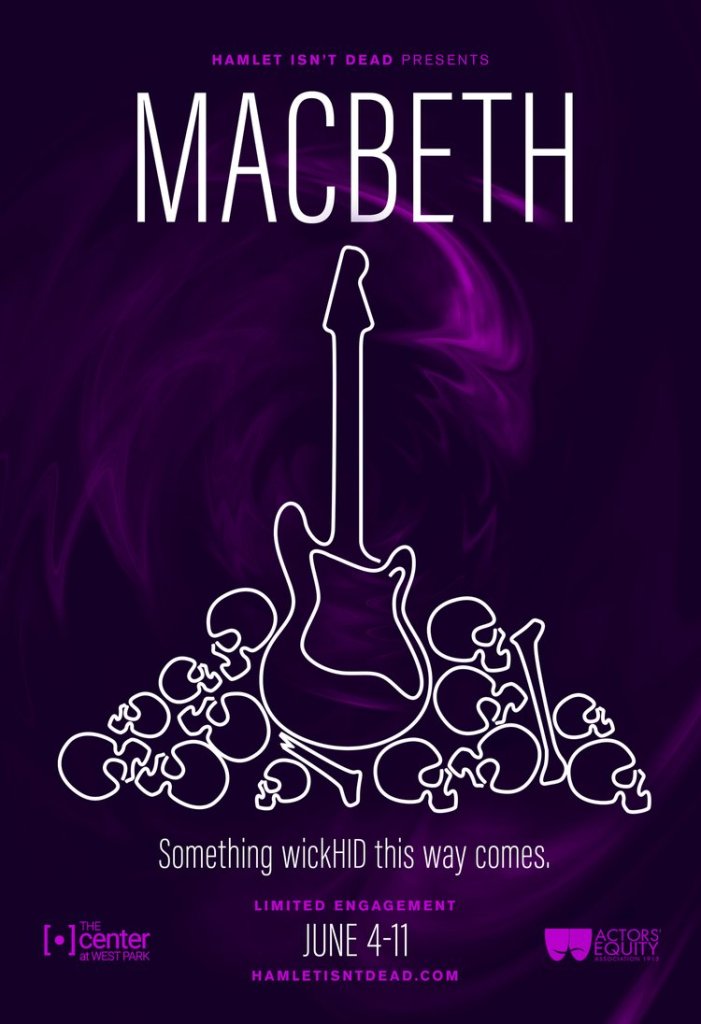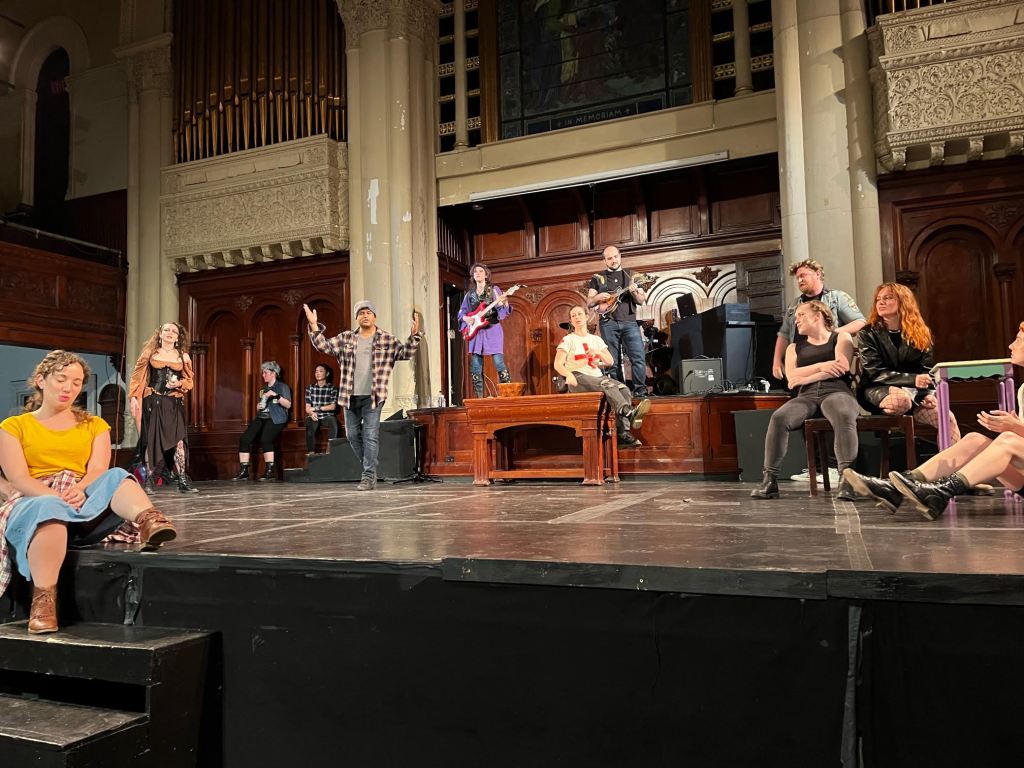By Rodney Hakim, from the ‘New York Shakespeare’ social media feeds


The New York Shakespeare scene can be categorized in many ways, but one of my favorite ways to describe it is as a series of fiefdoms, with each neighborhood around town being a fief unto itself, and having its own signature style or approach to how they present Shakespeare. This week, I visited the Shakespearean sector on West 86th Street in Manhattan’s Upper West Side, and found that this particular fiefdom is run by aliens.
Now, when I say aliens, I don’t mean that in the sense that aliens from outer space have touched down on West 86th Street, and that they have decided to interact with humanity by presenting Shakespeare. The alien I am referring to here has more of historical theatrical context to it, and is in keeping with the aliens from the ‘verfremdungseffekt’.
You might have just read that, and are asking if I’m the alien, and not know what I’m talking about. The verfremdungseffekt was a theatrical style popularized in Germany in the 1920’s and 30’s by Bertolt Brecht, and espoused the idea of a theatrical or cinematic style with an intentional ‘alienation effect’ on the audience, which would remind the audience that what they were seeing was only a play, and not to get too deeply lost in it. The idea was that if viewers got too deeply lost in the play, that they could not be critical thinkers about what they were seeing, which was what Brecht and his contemporaries were willing to jolt their audiences into being.
Fast forward 100 years from Germany to the Upper West Side. The ‘aliens’ I’m cheekily referring to above are Brecht’s kind of aliens, with audiences being jolted out of any complacency, and being asked to actively think about what they are watching.
The two shows I’m specifically referring to are ‘Lear’ from the Barefoot Shakespeare Company, and ‘Macbeth’ from Hamlet Isn’t Dead. Both shows have limited runs, ending tomorrow on Saturday 6/11.

‘Lear’ takes place in Central Park at Summit Rock, which is tucked just south of the entrance on Central Park West and 85th Street. Here, the Barefoot Shakespeare Company, a ten plus year old troupe, which is female fronted and feminist in bent, presents a free, 90 minute outdoor rendition of the King Lear story.
This show sets its variation on the Lear family drama in what appears to be America’s Old West, with the Lear family ostensibly having attained their wealth as old timey prospectors. The action unfolds at Summit Rock, with rows of park benches and a retaining wall providing audience seating.

The ‘alienation effect’ that occurs here is not necessarily from the transfer of the story from old timey Shakespeare to old timey American West, nor from the heavily cut text. Those types of changes are common with Shakespeare.
Rather, the ‘alienation’ occurs with the portrayal of the central character of ‘Lear’. Typically, Lear is a larger than life patriarch, who wildly rages against his three daughters, himself, nature, and the world when the succession plan he lays out to them is not received as well as planned, to say the least.
In this production of ‘Lear,’ the titular patriarch is played by Jerry Raik much differently than I have ever seen, as being somewhat mild mannered and cerebral, with any raging that occurs happening around him, rather than by him. This decentralization of the rage in Lear, as subtle a change as it might be, turns the play upside down, and makes the story about the implosion of a family, more so than the explosion of one.

A few blocks away, on West 86th Street and Amsterdam Avenue, the irreverent troupe, Hamlet Isn’t Dead presents their take on ‘Macbeth’ in the historic Center At West Park, which has gone in recent years from being a dilapidated church into a wildly popular performance space.
Hamlet Isn’t Dead is known for their off-beat humor, with their tagline being a running joke about how they are the 847th (or 632nd or 256th) best Shakespeare company in New York. They are also known for infusing musicality into their shows, and for their warm embrace of the LGBT+ community. They humorously refer to their company members as HIDiots.

Their version of ‘Macbeth’ starts with a band onstage, led by their talented Music Director, Maureen Fenninger, which soon morphs into the Three Weird Sisters (or Two Weird Sisters and One Brother) upstage center throughout the proceedings, providing timely guitar riffs, horn blows, drum beats, and even crow caws.
The action proceeds apace, with solid performances from many company members, including Daniel Cabrera and Samantha Ipema as Macbeth and Lady Macbeth, and with many fun contributions from the rest of the cast. Traditionally, the play is tense and dreary, with only a handful of humorous moments, including those with the Porter (a game Michael Luca), and the lines with Lady Macduff and her clever child.
In this production, though, director Valerie Peter Chong finds humor in many unexpected places, and in many surprising ways. Some of the most sparkling of these comedic moments are the humorously tense wait while King Duncan’s murder is being discovered, some clowning with members of the onstage band, and some moments of mirth in the midst of the final battle with Macbeth.
The ‘alienation effect’ occurs, however, with the musical and comedic interludes placed elsewhere in the production. King Duncan, for instance, as played by Dom Martello, is equal parts fabulous and bitchy, and is very, very funny. This sits strangely, however, in that as much fun as it is, Duncan’s snippiness, as opposed to the more common playing of gentle and virtuous, pulls the viewer away, and makes them wonder whether it’s really such a crying shame if our anti-hero, Macbeth kills off this less than universally beloved King.
Elsewhere, as intermission concludes, and the performance is about to resume, the actors playing Macbeth and Malcolm come on stage in their street clothes, and lead the audience in a rollicking sing-along to “I Would Walk 500 Miles.” The audience went wild for this, and had a blast singing along with the cast. If Macbeth is ‘steeped so far in blood’, though, would he and his mortal enemy, Malcolm be singing karaoke songs together? Is this cessation of our suspension of disbelief trying to tell us something? Are we being reminded that this is just a play, and that between all the murders and bloodshed, we should all join together, no matter what side of the spectrum we’re coming from?
In speaking with some of the self proclaimed HIDiots after the show, they seemed to embrace the differences, suggesting that if one wanted to see a traditional Macbeth, they could head downtown, and see the Broadway version with Daniel Craig. They proudly present their alternative version uptown, alienation effect, comedy and all.
While ‘Lear’ and ‘Macbeth’ offer different versions of Shakespearean alienation, they are both good fun, and solid shows that any good Shakespeare buff should try to catch while they can. Check out the websites below for more information about both shows.
Barefoot Shakespeare Company: https://barefootshakespeare.org/
Hamlet Isn’t Dead: https://www.hamletisntdead.com/